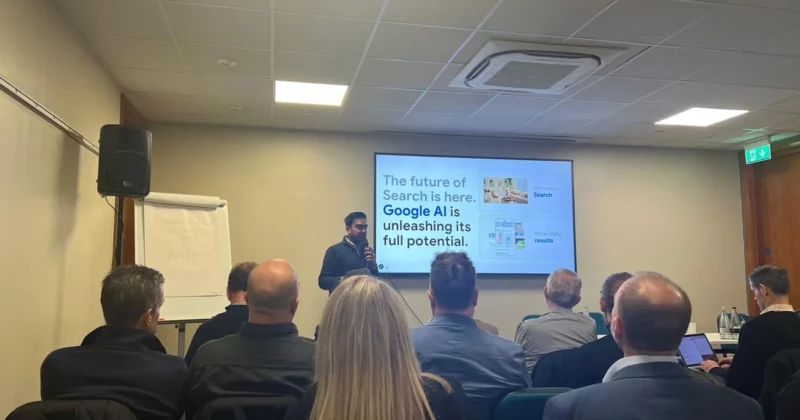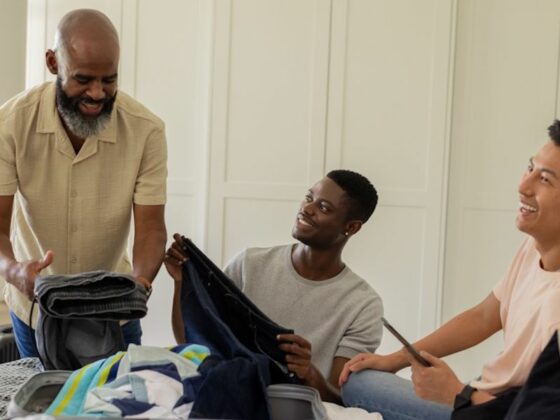
Gabriel Weisz, Listo’s founder, is no stranger to startups. In 2014, he created Kallpod, a company that offers physical tabletop devices that connect guests to staff. The tabletop device features three fully customizable buttons that guests can push at will when they’re looking to get the servers attention. When a button is pushed, the server is immediately alerted to which table is asking for their attention via a notification on their Kallwatch.
“This product was designed to solve a very common problem within the hospitality industry: the inability for guests to effectively get a hold of servers and get the services they needed at the time they needed them,” Weisz explained.
But while working on Kallpod, Weisz noticed that the guest-to-staff communication challenge expanded far beyond the guest to server interaction, and in parallel, there was an equally large staff-to-staff communication problem.
Hospitality employees are typically asked to use radio headsets, two-way radios, text messages, or other ineffective forms of communication to converse with each other. Additionally, these methods don’t allow for any type of data collection, preventing hospitality brands from gaining insight into important performance metrics among staff.
And so, the idea for Listo was born. The Listo platform allows guests to scan a QR code and make service requests to an assigned staff member. The staff are then alerted instantly to the client’s request and location. Staff assigned to that particular area will be notified of the client’s request via a Listo configured smartwatch or on their mobile device, and they can either accept and fulfill the request or decline it and have the request routed to someone else. When the request is accepted, the guest is notified that their request is being processed and who is working on it, much like Uber but with service staff instead of cars. Simultaneously, Listo can be used for staff to communicate with one another to streamline inventory/restock requests, maintenance issues, IT service, security assistance or multitude of other options.
However, the Listo platform differs from Kallpod in that it also provides stadiums, restaurants, and hotels with valuable staff activity data. For example, it can answer questions such as: How long did it take the server to get to the suite? How long did it take to close out the guest’s request? Who are my highest performing staff members? Which tables, guestrooms or stadium suites are more needy and take up more of a staff member’s time? How many times are guests clicking on mobile order and pay versus requesting a server?
And for this reason, SoFi Stadium decided to partner with Listo and deploy it within its 260 guest suites.
SoFi Stadium Implements Listo
At $5.5 billion, California’s SoFi Stadium is reportedly one of the most expensive stadiums ever built. Opened in September 2020, the stadium is home to the Los Angeles Rams and Los Angeles Chargers and can seat just over 70,000 fans. It’s also been dubbed the country’s most technologically advanced stadium. From its “TV roof” to its wraparound mega-screen, from its 56 5G antennas to its use of digital twin tech, this stadium finds a way to use technology to improve the guest experience in every possible way.
However, the stadium noticed a problem. There was no way for its highest spending guests to reach a server directly after the server left one of its luxury suites. This was problematic since these guests expect an elevated customer experience. To fix this issue, Listo worked with SoFi Stadium to place its QR codes within the stadium suites. When scanned by the guest’s smartphone, Listo becomes a guest experience platform that offers a series of options for how the guest can get in touch with their server, order and pay for food, request suite essentials, leave feedback on the service they’ve received, etc.
While solving this guest experience problem, it also allowed the stadium to track important staff performance metrics that could help it ensure its highest paying guests were getting top tier service. And it allows the stadium to better understand how many staff members it needs for any given event and where to assign them.
Since implementing Listo, Sofi has responded to hundreds of requests in just a couple of weeks since its launch in early August, on track for thousands of requests in this NFL season alone! Simultaneously the platform has enabled staff to respond to guests more efficiently, streamlined platinum service delivery to its VIP guests, and provided better visibility to management. Industry-wide, Listo has seen its client’s experience a 5.4x return in revenue for every dollar spent on Listo and a 15-20% reduction in labor costs.










